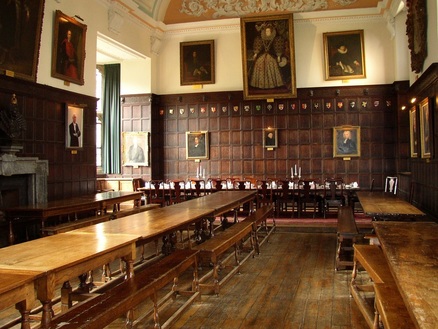|
Phil gave a research talk in Oxford on 'Carnivores, prey and macroecology', based on ongoing collaborations with Chris Carbone. The seminar focused on the use of simple models to try to explain observed relationships between carnivore abundances and those of their prey, and to explain the energetic limits to carnivore rarity. Treated to very fine hospitality by Tim Coulson, and lively discussions over dinner with various members of the department, he was left feeling like Harry Potter after a night staying in the rarified surrounds of Jesus College. Photo source: http://gertjanvandenbosch.blogspot.co.uk/2013/05/instrument-rated-next-step-mccajfc.html
0 Comments
Phil gave a research talk at Stirling University, enjoying the fine hospitality and Canadian cuisine of his host, Luc Bussiere. Postgrads and postdocs were interactive and enthusiastic about their work, which is always stimulating. The talk focused on what we can learn about mammal behaviour, ecology and macroecology, from data not collected for purpose. The conclusion was that we can learn a lot, but such data almost always frustrate attempts to attribute causality. The mammalian ecology research community needs to consider new approaches to collecting data in a way that rivals the long-term, large-scale data sets on birds and butterflies, for example. Photo: Stirling Council
Teegan heads off to the North West Province of South Africa for her first field season at Mankwe Wildlife Reserve. She will be looking at how fire influences animal communities in savanna ecosystems. November through March is the wet season with temperatures in the upper 20s, conditions perfect for growing the long grasses preferred by the rhino, zebra, eland and many species of smaller antelope. Furthermore, with close to 360 migrant and resident bird species nesting in the region, understanding how fire influences species habitat choice will provide important information for conservation management. More information can be found here. Best of luck!
|
Archives
March 2019
Categories
All
|


 RSS Feed
RSS Feed
